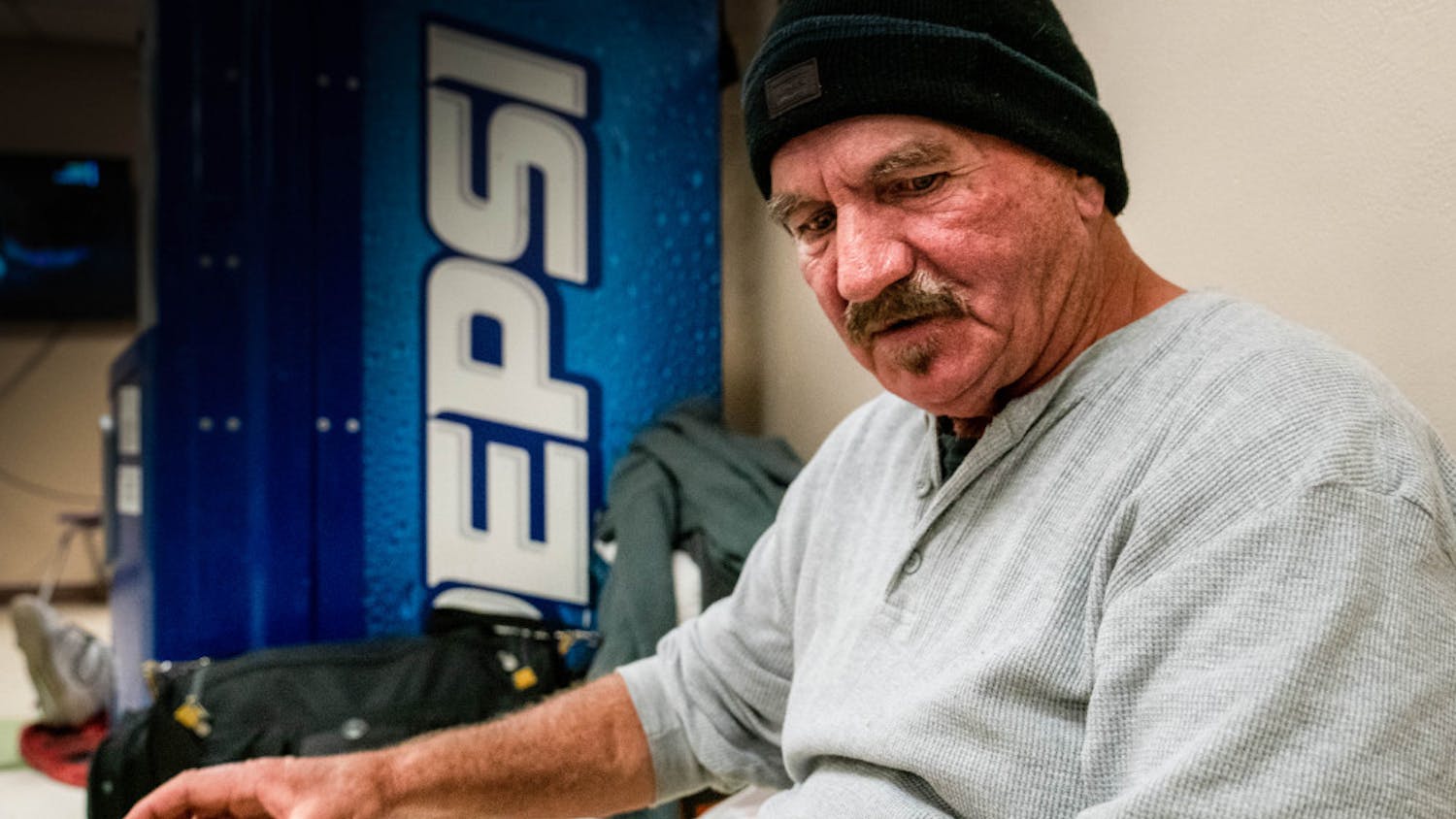Nine years ago, a 10-year plan to end homelessness began in Gainesville. It only takes a walk past Bo Diddley Community Plaza downtown to see how well that went.
To be fair, homelessness is not an easy issue to tackle. But Gainesville is a small town with a big problem. The city had the second largest growth in its homeless population among smaller cities, according to a 2012 study by the U.S. Department of Housing and Urban Development.
After 10 years, there might be a solution — but don’t get your hopes up.
Late last year, the city purchased the former Gainesville Correctional Facility to turn it into what they envision as a one-stop center for the homeless — a place for society’s most neglected to get food, shelter and access to other services that can help them empower themselves. It’s being run by the Alachua County Coalition for the Homeless and Hungry, a local nonprofit.
Homelessness is a multipronged issue. It can stem from anything from economic hardship to mental illness. This new center for the homeless — it has yet to be named — would address different aspects of the issue to help reduce it overall.
In theory, this is a fantastic idea. It helps get at the root of homelessness by offering services beyond a bed to sleep in. Ideally, it is a temporary stop to help people get on their feet and off the street.
Unfortunately, even this solution leaves a lot to be desired.
For one, the goal isn’t to end homelessness, despite that 10-year plan. According to WUFT, the executive director of ACCHH said the ultimate goal is to relocate the homeless from their usual residence of Bo Diddley Plaza.
Hiding homelessness has become all the rage. Cities across the nation accomplish this by criminalizing the act of being homeless, throwing people in jail for being without a home. Other times, feeding the homeless is criminalized. Take the case of the Rev. Hugh Hollowell in Raleigh, N.C. He and a group of volunteers set up near a park with breakfast sandwiches and coffee only to be told by the police that if he served anyone, he would be arrested. Apparently a permit is required to serve food in the park, which costs $800 per day.
Gainesville hasn’t gone that far. Instead, it will force the homeless almost four miles away from the town square, more than an hour-long walk. City officials counter that there are two bus routes that go to the center, which is near Gainesville Regional Airport. They don’t answer how the homeless are expected to pay the fare, however.
Even if ending homelessness was the plan, this new shelter doesn’t go far enough to accomplish it. Only four buildings will benefit the homeless, despite having much more space on the property. Other buildings will house different programs that will be chosen by the community.
Another issue is that the center will only be able to house 100 people: 50 men and 50 women. That is far short of the 2,094 homeless people counted by the ACCHH in 2012 (acchh.org/infoabout.shtml), the latest count available. A decade after a 10-year plan to end homelessness was implemented means it should be nearly gone. Instead, this multimillion-dollar project will reduce it by less than one-tenth of 1 percent.
The City of Gainesville has done little to eliminate homelessness at the end of its 10-year plan. This new, one-stop center for the homeless is a start, but if it is going to make a difference, it must be made more accessible to more people. For now, the only hope is that this center will make a difference for the few who are able to utilize it.
[Justin Jones is a UF journalism senior. His columns appear on Thursdays. A version of this column ran on page 6 on 2/20/2014 under the headline “Plan to help homeless a step, not a solution"]





